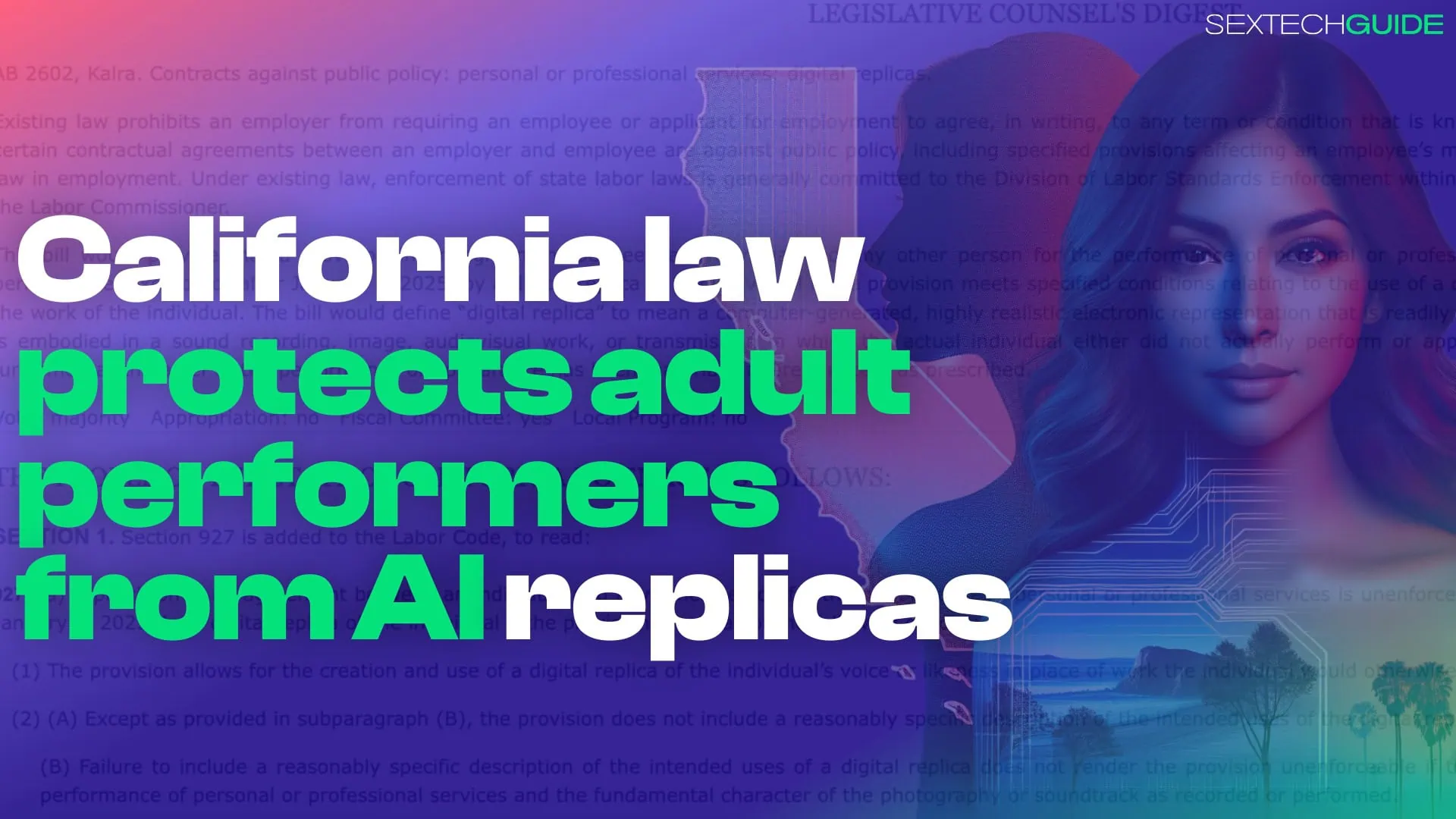A new law regarding use of digital replicas of online performers, including adult entertainment, is being implemented in California, and could have wider implications for content creators and utilization of AI.
The bill, AB-2602, was signed into the California Labor Code by California governor Gavin Newsom. The law renders unenforceable any contracts that grant individuals or companies control over a digital replica of a performer, and would additionally require companies and individuals to have the consent and cooperation of a performer to legally use a digital version of them.
In theory, this would mean that an online platform or agency could not compel a performer to sign over complete rights to use an AI-created digital version of the performer. With AI now capable of making realistic voice and body replicas of performers, this could help protect porn creators from opportunistic exploitation.
The groundwork for the bill came from the Hollywood film and TV industries, recognizing that AI technology is approaching the point where hyper-realistic digital versions of individuals can be created. Industry-watchers envisage a point in the near-future when, logistically if perhaps not legally, an AI version of a film star could appear in a feature-length movie without the involvement of the star in question.
Many porn and erotic content creators, and other influencers, use AI in their work, sometimes making digital versions of themselves that can interact with fans and earn money. For example, AI chatbot services that fans can use to interact with a creator, featuring AI voice responses trained on the creator’s real voice, have become increasingly common.
This kind of technology could also be used by companies to replicate creators in digital form and similarly earn from fan interactions. However, under the new law, in California this would not be legal without the performer’s permission, and the performer could not be locked into an enforceable contract waiving their rights to ownership of the digital version of themselves.
The new law will cover performances made after January 1, 2025. It defines a “digital replica” of a person as a computer-generated likeness that can include sound or vision, for which the performer depicted did not actually perform, or for which their performance was materially altered.
Silverstein Legal, a Michigan-based legal firm, said: “This new law is especially critical for performers in the adult industry, where the creation of digital replicas and the use of AI-generated content is becoming increasingly common. The law ensures that performers are not inadvertently signing away their rights to digital reproductions of their likeness or voice without proper legal representation or clear contractual terms.”
The law firm said that the law should lead to porn producers, studios and online platforms that use AI content reviewing and updating their contracts, to ensure compliance. Silverstein added that they needed to give clear, specific descriptions about how AI digital replicas of performers may be used, so it is in line with the new law.
SAG-AFTRA, the US actors’ union, had pushed hard for the bill to be passed. Concern about actors being replaced by AI technology has been a hot topic for the union. The bill was initially opposed by the Motion Picture Association, which lobbies for major movie studios.
While the main focus of the bill is mainstream film and TV industries, its enactment will be welcomed among porn content creator individuals facing increasingly tough online climates. Mainstream social media platforms such as those run by Meta have stringent anti-nudity rules, limiting the promotion work porn creators can do on them, despite the new opportunities AI has presented.
Recently a group of sex-positive porn and porn-adjacent industry figures and companies released an open letter, calling for EU AI regulators to include them in regulation discussions.
Fenwick, a legal firm with an office in San Francisco, California, said the enactment of the California bill “marks a significant step in regulating the use of AI in California, emphasizing the importance of negotiating with talent for desired rights to use AI generated likeness and reflecting it specifically in their agreements.”






Leave a Reply